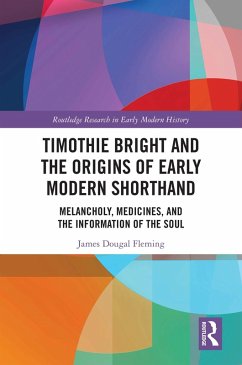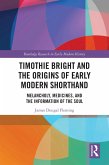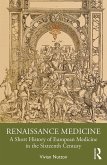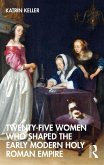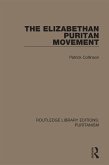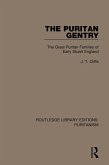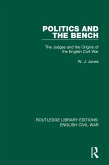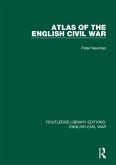James Dougal Fleming
Timothie Bright and the Origins of Early Modern Shorthand (eBook, ePUB)
Melancholy, Medicines, and the Information of the Soul
41,95 €
41,95 €
inkl. MwSt.
Sofort per Download lieferbar

21 °P sammeln
41,95 €
Als Download kaufen

41,95 €
inkl. MwSt.
Sofort per Download lieferbar

21 °P sammeln
Jetzt verschenken
Alle Infos zum eBook verschenken
41,95 €
inkl. MwSt.
Sofort per Download lieferbar
Alle Infos zum eBook verschenken

21 °P sammeln
James Dougal Fleming
Timothie Bright and the Origins of Early Modern Shorthand (eBook, ePUB)
Melancholy, Medicines, and the Information of the Soul
- Format: ePub
- Merkliste
- Auf die Merkliste
- Bewerten Bewerten
- Teilen
- Produkt teilen
- Produkterinnerung
- Produkterinnerung

Bitte loggen Sie sich zunächst in Ihr Kundenkonto ein oder registrieren Sie sich bei
bücher.de, um das eBook-Abo tolino select nutzen zu können.
Hier können Sie sich einloggen
Hier können Sie sich einloggen
Sie sind bereits eingeloggt. Klicken Sie auf 2. tolino select Abo, um fortzufahren.

Bitte loggen Sie sich zunächst in Ihr Kundenkonto ein oder registrieren Sie sich bei bücher.de, um das eBook-Abo tolino select nutzen zu können.
In Timothie Bright and the Origins of Early Modern Shorthand , J. D. Fleming brings together two areas of sixteenth-century intellectual history.
- Geräte: eReader
- mit Kopierschutz
- eBook Hilfe
Andere Kunden interessierten sich auch für
![Timothie Bright and the Origins of Early Modern Shorthand (eBook, PDF) Timothie Bright and the Origins of Early Modern Shorthand (eBook, PDF)]() James Dougal FlemingTimothie Bright and the Origins of Early Modern Shorthand (eBook, PDF)41,95 €
James Dougal FlemingTimothie Bright and the Origins of Early Modern Shorthand (eBook, PDF)41,95 €![Renaissance Medicine (eBook, ePUB) Renaissance Medicine (eBook, ePUB)]() Vivian NuttonRenaissance Medicine (eBook, ePUB)37,95 €
Vivian NuttonRenaissance Medicine (eBook, ePUB)37,95 €![Twenty-Five Women Who Shaped the Early Modern Holy Roman Empire (eBook, ePUB) Twenty-Five Women Who Shaped the Early Modern Holy Roman Empire (eBook, ePUB)]() Katrin KellerTwenty-Five Women Who Shaped the Early Modern Holy Roman Empire (eBook, ePUB)20,95 €
Katrin KellerTwenty-Five Women Who Shaped the Early Modern Holy Roman Empire (eBook, ePUB)20,95 €![The Elizabethan Puritan Movement (eBook, ePUB) The Elizabethan Puritan Movement (eBook, ePUB)]() Patrick CollinsonThe Elizabethan Puritan Movement (eBook, ePUB)43,95 €
Patrick CollinsonThe Elizabethan Puritan Movement (eBook, ePUB)43,95 €![The Puritan Gentry (eBook, ePUB) The Puritan Gentry (eBook, ePUB)]() J. T. CliffeThe Puritan Gentry (eBook, ePUB)30,95 €
J. T. CliffeThe Puritan Gentry (eBook, ePUB)30,95 €![Politics and the Bench (eBook, ePUB) Politics and the Bench (eBook, ePUB)]() W. J. JonesPolitics and the Bench (eBook, ePUB)33,95 €
W. J. JonesPolitics and the Bench (eBook, ePUB)33,95 €![Atlas of the English Civil War (eBook, ePUB) Atlas of the English Civil War (eBook, ePUB)]() Peter NewmanAtlas of the English Civil War (eBook, ePUB)33,95 €
Peter NewmanAtlas of the English Civil War (eBook, ePUB)33,95 €-
-
-
In Timothie Bright and the Origins of Early Modern Shorthand, J. D. Fleming brings together two areas of sixteenth-century intellectual history.
Dieser Download kann aus rechtlichen Gründen nur mit Rechnungsadresse in A, B, BG, CY, CZ, D, DK, EW, E, FIN, F, GR, HR, H, IRL, I, LT, L, LR, M, NL, PL, P, R, S, SLO, SK ausgeliefert werden.
Produktdetails
- Produktdetails
- Verlag: Taylor & Francis eBooks
- Seitenzahl: 240
- Erscheinungstermin: 14. Juni 2024
- Englisch
- ISBN-13: 9781040047323
- Artikelnr.: 70335516
- Verlag: Taylor & Francis eBooks
- Seitenzahl: 240
- Erscheinungstermin: 14. Juni 2024
- Englisch
- ISBN-13: 9781040047323
- Artikelnr.: 70335516
- Herstellerkennzeichnung Die Herstellerinformationen sind derzeit nicht verfügbar.
James Dougal Fleming is Professor of English Literature at Simon Fraser University in Vancouver, Canada. His research is primarily in early modern intellectual history, with an emphasis on epistemic issues surrounding, and arising from, the Scientific Revolution. His previous books are Milton's Secrecy and Philosophical Hermeneutics (2008), The Mirror of Information in Early Modern England: John Wilkins and the Universal Character (2017), and (ed. and intro.) The Invention of Discovery, 1500-1700 (2011).
Introduction
The Double physician
Informatio medici
Messages and meanings
From hand to soul
Part One: Technology
1. The Seventeenth-Century Shorthand Movement: In Four Corners
A Protean art
Yet shorter
Groovy images
Another way to the word
2. "My Invention": What Was Characterie?
Verbatim notation
Informational exchange
Hybrid publishing
Innovation
Source
3. "Indifferently Affected": The Characterie Terms
Wanting an alphabet
De arte combinatoria
A Book of lists
Writing sermons
Orality and control
Mere information
Part Two: Theory
4. Against Navigation: English Medicines
The Medical background, ca. 1580
An English Galenism, 1574
The Paracelsian difference, 1585
TEM (i) Aut externi orbis
(ii) Here be (no) serpents
5. "Never Able to Abide": The Melancholy Conscience
The Medical Tradition: Natural, genial, adust
The Literary Valence: Euphues his face
Treatment: Going on a data
TMel (i) "Saving that"
(ii) "No medicine, no purgation, no cordial"
(iii) "Spectacles are to be shunned"
(iv) "In written words revealed"
6. "The Mechenist": Not Being There
TMel (v) The Natural chemist
(vi) Invisible seeds
(vii) Bright's spirit
(viii) Faculty and instruments
(ix) In machina
(x) Serenity of the spotless psyche
(xi) Information overload
Conclusion
Appendices
1. Sixteenth-Century English shorthands before Bright's? The absence of
evidence.
2. Lists of the Characterie terms.
3. Bright on "soul" and "mind."
Bibliography
The Double physician
Informatio medici
Messages and meanings
From hand to soul
Part One: Technology
1. The Seventeenth-Century Shorthand Movement: In Four Corners
A Protean art
Yet shorter
Groovy images
Another way to the word
2. "My Invention": What Was Characterie?
Verbatim notation
Informational exchange
Hybrid publishing
Innovation
Source
3. "Indifferently Affected": The Characterie Terms
Wanting an alphabet
De arte combinatoria
A Book of lists
Writing sermons
Orality and control
Mere information
Part Two: Theory
4. Against Navigation: English Medicines
The Medical background, ca. 1580
An English Galenism, 1574
The Paracelsian difference, 1585
TEM (i) Aut externi orbis
(ii) Here be (no) serpents
5. "Never Able to Abide": The Melancholy Conscience
The Medical Tradition: Natural, genial, adust
The Literary Valence: Euphues his face
Treatment: Going on a data
TMel (i) "Saving that"
(ii) "No medicine, no purgation, no cordial"
(iii) "Spectacles are to be shunned"
(iv) "In written words revealed"
6. "The Mechenist": Not Being There
TMel (v) The Natural chemist
(vi) Invisible seeds
(vii) Bright's spirit
(viii) Faculty and instruments
(ix) In machina
(x) Serenity of the spotless psyche
(xi) Information overload
Conclusion
Appendices
1. Sixteenth-Century English shorthands before Bright's? The absence of
evidence.
2. Lists of the Characterie terms.
3. Bright on "soul" and "mind."
Bibliography
Introduction
The Double physician
Informatio medici
Messages and meanings
From hand to soul
Part One: Technology
1. The Seventeenth-Century Shorthand Movement: In Four Corners
A Protean art
Yet shorter
Groovy images
Another way to the word
2. "My Invention": What Was Characterie?
Verbatim notation
Informational exchange
Hybrid publishing
Innovation
Source
3. "Indifferently Affected": The Characterie Terms
Wanting an alphabet
De arte combinatoria
A Book of lists
Writing sermons
Orality and control
Mere information
Part Two: Theory
4. Against Navigation: English Medicines
The Medical background, ca. 1580
An English Galenism, 1574
The Paracelsian difference, 1585
TEM (i) Aut externi orbis
(ii) Here be (no) serpents
5. "Never Able to Abide": The Melancholy Conscience
The Medical Tradition: Natural, genial, adust
The Literary Valence: Euphues his face
Treatment: Going on a data
TMel (i) "Saving that"
(ii) "No medicine, no purgation, no cordial"
(iii) "Spectacles are to be shunned"
(iv) "In written words revealed"
6. "The Mechenist": Not Being There
TMel (v) The Natural chemist
(vi) Invisible seeds
(vii) Bright's spirit
(viii) Faculty and instruments
(ix) In machina
(x) Serenity of the spotless psyche
(xi) Information overload
Conclusion
Appendices
1. Sixteenth-Century English shorthands before Bright's? The absence of
evidence.
2. Lists of the Characterie terms.
3. Bright on "soul" and "mind."
Bibliography
The Double physician
Informatio medici
Messages and meanings
From hand to soul
Part One: Technology
1. The Seventeenth-Century Shorthand Movement: In Four Corners
A Protean art
Yet shorter
Groovy images
Another way to the word
2. "My Invention": What Was Characterie?
Verbatim notation
Informational exchange
Hybrid publishing
Innovation
Source
3. "Indifferently Affected": The Characterie Terms
Wanting an alphabet
De arte combinatoria
A Book of lists
Writing sermons
Orality and control
Mere information
Part Two: Theory
4. Against Navigation: English Medicines
The Medical background, ca. 1580
An English Galenism, 1574
The Paracelsian difference, 1585
TEM (i) Aut externi orbis
(ii) Here be (no) serpents
5. "Never Able to Abide": The Melancholy Conscience
The Medical Tradition: Natural, genial, adust
The Literary Valence: Euphues his face
Treatment: Going on a data
TMel (i) "Saving that"
(ii) "No medicine, no purgation, no cordial"
(iii) "Spectacles are to be shunned"
(iv) "In written words revealed"
6. "The Mechenist": Not Being There
TMel (v) The Natural chemist
(vi) Invisible seeds
(vii) Bright's spirit
(viii) Faculty and instruments
(ix) In machina
(x) Serenity of the spotless psyche
(xi) Information overload
Conclusion
Appendices
1. Sixteenth-Century English shorthands before Bright's? The absence of
evidence.
2. Lists of the Characterie terms.
3. Bright on "soul" and "mind."
Bibliography
